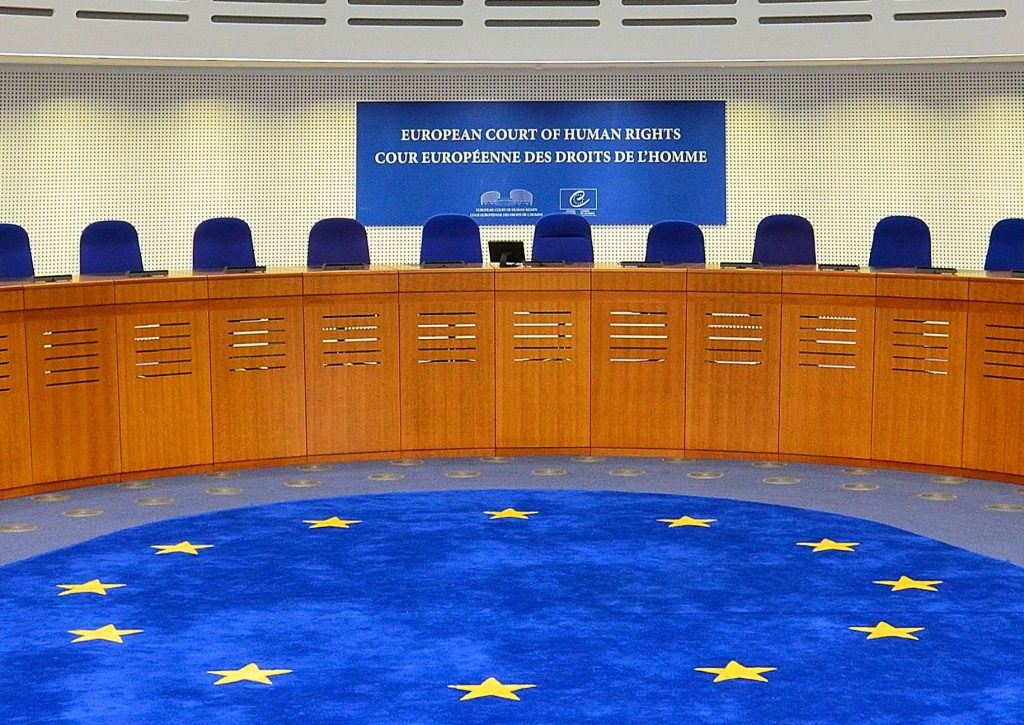EU citizenship and the rights that it offers have been in the spotlight from the very start of the European Union (EU).
Being described by many as one of the foundation stones of the European integration, EU citizenship is considered as one of the building blocks of the EU. EU citizenship is important as it not only expands the boundaries that come with national citizenship, but it also helps to redefine the European political realities.
The concept underwent major developments which are stated in various treaties such as the Treaty of Maastricht, the Amsterdam Treaty, the Treaty on the Functioning of the European Union and the Lisbon Treaty.
One of the most important rights implies that every person holding the nationality of an EU member state is automatically considered an EU citizen, inferring also that EU citizenship does not substitute national citizenship. Other important rights include the right of EU citizens to move, reside, study and work anywhere in the EU. In particular, freedom of movement of EU citizens and their families was established in the Maastricht Treaty and listed in the European Parliament and the Council Directive 2004/38/EC. This Directive is important as it establishes the conditions and restrictions for acquisition of the right of permanent residence based on security, public health and public policy.
The improvement of the above mentioned Treaties have brought about the strengthening of further rights such as non-discrimination on the basis of nationality; to vote for and stand as a candidate in the EU Parliament and municipal elections; to receive the necessary healthcare; to benefit from the highest food safety standards in the world; the protection of vulnerable people; improved passengers’ rights, advancement related to telecoms, enhanced rights for crime victims’ and a fair trial; information and guidance directly from the EU Institutions; protection offered by the consular and diplomatic authorities within the European Union; to petition the EU Parliament and file complaints to the EU Ombudsman; to have access to EU Civil Service; and documents from both the EU Commission and the Council amongst others.

In 2009, the Lisbon Treaty gave full legal effect to the Charter of Fundamental Rights of the European Union, which protects the rights of those holding EU citizenship. The same Charter initiated the right of entry and residence for family members of Union citizens, including same-sex spouses or partners.
Article 18 TFEU and Article 21(2) of the Charter of Fundamental Rights prohibits discrimination on grounds of nationality within the application of the Treaties. The rights in the Charter are listed under six main headings being: Dignity, Freedom, Equality, Solidarity, Citizens’ rights and Justice.
Another important right for EU citizens is the right to petition the European Union’s Ombudsman. The European Ombudsman investigates complaints about poor administration by EU institutions or other EU bodies. These may be lodged by citizens or residents of EU countries or by EU-based associations or businesses.
In recent years, Dual citizenship has become an increasingly popular option as it provides access to opportunities and security. Indeed, there has been a significant increase in the number of citizens with second citizenship as a result of the rise in private wealth citizenship. Moreover, with the emergence of the concept of economic migration, the general and political attitude towards dual citizenship has become more positive since it brought about a significant increase in international trade, globalisation and improvements in transportation, communications and technology.
Since the issue of citizenship is within the sovereignty of the country, different countries’ position on citizenship can be separated into three main fields: allowing , restricting and prohibiting dual citizenship. Nationals from countries forming part of the European Union will also benefit from EU citizenship which comes with a vast array of benefits. EU citizenship confers the right to an EU citizen to move, reside, study, work and do business within another EU Member State, a factor which has attracted several non-EU nationals to seek a second citizenship of an EU member state, particularly through Citizenship by Investment programmes. As a response to this, CCLEX’s Research and Development team carried out a comprehensive analysis, The Dual Citizenship Report, of laws regulating dual citizenship in European jurisdictions and their stance with respect to dual citizenship.
In order to do so, CCLEX’s researchers carried out a data gathering exercise wherein they collaborated with a number of specialist European immigration law firms that provided information and commentary on the citizenship laws in their respective countries. Besides providing vetted information from trusted legal sources in each jurisdiction, CCLEX’s researchers further supplemented this primary data with extensive research on the laws of the country, official information provided on government and consulate websites, and other information from reputable sources.
The findings of the report highlight the main circumstances in which a person may wish to obtain dual citizenship, including: birth in a country that grants citizenship by birth; citizenship by descent; through marriage; through adoption by parents who are citizens of another country; citizenship by neutralisation; and through the application of one of the Citizen by Investment (CBI) Programmes offered by various European jurisdictions, namely Malta, Austria and Cyprus.

The number of High Net Worth Individuals around the world is on the rise, reaching a record high of 143,872,37 in 2016 and is expected to continue to grow, increasing the demand for second citizenship.
High Net Worth Individuals (HNWI) are identified as individuals who have more than $1 million in assets, usually excluding permanent residency. These are further subdivided into wealth categories including multi-millionaires who have over $10 million in assets, ultra-high net worth individuals with assets exceeding $30 million and billionaires who have a net worth of over $1billion.
The 2017 Knight Frank Report shows that from 2006 to 2016, the total number of HNWI increase from 105,317,49 to 143,872,37. This is an average upsurge of 40% and is expected to continue to rise to 19,741,422 by 2026.
In order to continue to grow and develop their wealth, an increasing number of HNWI choose to diversify their wealth by investing overseas and broadening their portfolios. A survey of Middle eastern HNWI has revealed that over 60% are interested in investing in international real estate as a way of having more secure investments.

Overseas investment is also occurring because high net worth individuals and their families are becoming more mobile with business interests expanding beyond national boundaries by establishing both their business and families internationally. With this being said, the acquisition of a second citizenship is a worthwhile investment for HNWI as it makes the above a much easier process. In fact, there are a number of different factors which are encouraging this investment;
Visa-free travel
One classic benefit for HNWI through the acquisition of a second citizenship is the ability to travel to different countries without the need to obtain a Visa. This makes travelling for both business and pleasure much easier, especially if the individual comes from a country with a passport that offers very limited visa free travel destinations. Through acquiring Maltese citizenship for instance, an individual would gain visa-free travel to 167 different countries including the EU Schengen Area and the US.
Security
Unfortunately, different parts of the world are going through a number of political and economic instabilities which place a level of uncertainty on both the HNWI and their wealth. Having a second citizenship mitigates the risk as it acts an insurance policy if any major security issues arise.
Expanding businesses and working in the EU
Together with visa-free travel, having a second citizenship within an EU country, mainly Malta and Cyprus, also comes with the ability to live and work in any country within the European Union. This makes both the expansion of business and investments easier as one would be afforded the same rights as any other EU Citizen.
Double tax agreements and a favourable tax regime
Another feature which attracts HNWI to attain a second citizenship and/or economic residency elsewhere is the ability to live somewhere with more favourable tax regimes. This is especially true for both the Caribbean and the European Citizenship by Investment programmes, many of which do not charge tax on worldwide wealth unless remitted to the country. The European countries have also numerous multiple double tax agreements which saves the individual from having to pay double tax on the same earnings.
There are various benefits and advantages associated with dual citizenship. More people are experiencing an increase in their wealth portfolio as a result of their investments, business interests or inheritance. Investors are increasingly seeking opportunities away from their home country to grow their wealth and access markets with a higher potential than their country of origin. Various studies show that every year a large number of individuals and families migrate from their birth country and obtain dual citizenship. The reasons for seeking dual citizenship vary from one individual to another but the below is a list of main benefits of dual citizenship.

Security and mitigation of political risk
Obtaining dual citizenship through for example the acquisition of a second passport is primarily a wealth management strategy or even a mere attestation of an individual’s wealth, however there are various individuals whose citizenship poses a significant threat to their life or who experience significant prejudice at border controls due to travel controls imposed on nationals of their country. In such troubled times where states seem to profile by nationality, acquiring the citizenship of a peaceful, neutral country can be the ideal solution in cases of political unrest, civil war or other instability which threatens not only one’s livelihood and assets but one’s very life. Whatever happens, knowing that you will have the legal right to live and work in a jurisdiction of your choice can give you immense peace of mind that should not be underestimated.
Diversify your economic risks
From a business point of view, while a situation may not be so serious as to pose a legitimate threat on your life and the lives of your loved ones, political pressure and economic instability can also pose a threat to your assets which might have taken a lifetime to amass. By structuring your wealth through various investment options available under a citizenship by investment programme, you can make sure that you will never end up exposed to one economy or market. Moreover, a second passport will give you the opportunity to invest, travel, reside, work, study, bank, and do business in other jurisdictions which were previously inaccessible.
Visa free travel
As the saying goes, time is money, and for the international investor, the ability to travel across different countries in the shortest time possible is of utmost importance. Being able to access more investment opportunities, but being hampered by onerous visa requirements is highly counter-productive. Fortunately, a second passport from a reputable jurisdiction can grant you visa free travel as well. Therefore dual citizenship facilitates travel and investments which otherwise would be difficult to make.
Better quality of life
Although those who seek to acquire a second passport are generally individuals with substantial financial means, investing in a second passport can significantly improve one’s lifestyle. Investors who opt to attain a second European passport will be able to relocate to any EU member state together with their family. There are various benefits associated with living in a European Union member state, mainly a high standard of living which will allow families to provide the best education for their children, as well as better job opportunities. Moreover, individuals may seek to attain a second citizenship of a developed state which offers the best standards in health care.
Attaining dual citizenship
There are various ways how to obtain dual citizenship such as through birth, naturalisation or through citizenship by investment programmes. Indeed, attaining dual citizenship through a second passport in return for an investment into a state’s economy or a substantial investment carried out in the state, be it through the setting up a business, purchasing real estate or investing in government bonds is becoming a very common wealth management strategy amongst high net worth individuals.
A Global citizen is an individual that forms part of an emerging community of people that are less attached to their country of origin but seek to access the world to enjoy a better quality of life and increased opportunities.
The prosperity of our global community depends on the ability of people to experience the full potential of their abilities irrespective of their original citizenship or location. People who have cosmopolitan values see themselves as global citizens and come from different social, religious and cultural backgrounds. They build a pluralistic identity, meaning that they are less attached to their country of origin but seek more access and mobility to other places of the world.
Global citizenship is becoming an increasingly popular phenomenon. Today, we are witnessing a world where countries, people and economies are more interconnected with national boundaries become increasingly blurred. The best way to respond to this interconnection is to become a global citizen.
The prosperity of our global community depends on the ability of people to experience the full potential of their abilities irrespective of their original citizenship or location. People who have cosmopolitan values see themselves as global citizens and come from different social, religious and cultural backgrounds. They build a pluralistic identity, meaning that they are less attached to their country of origin but seek more access and mobility to other places of the world.
In today’s globalised world, becoming a global citizen can provide numerous benefits to different categories of people. For global citizens this means greater security and stability, tax efficiency, ease of travel, higher standard of living, increased options for children’s education, and investment opportunities.
For families, coming from countries which are passing through a period of war or political unrest, a second citizenship offers a gateway to security in another country. Others can see it as means to enjoy freedom to travel to discover the world, experience new cultures and people, or to simply enjoy a better lifestyle in a country away from the country of birth. According to research, wealthy migrants are motivated to become global citizens as they choose to relocate or acquire citizenship of another country.
Whilst the motivation to become global citizens is clear, there are instances where individuals have reduced mobility rights as a result of their original citizenship or passport. To facilitate mobility, wealth individuals today may opt to invest in a second passport. Numerous countries such as Malta and Cyprus in the EU, and a number of Caribbean countries have successful citizenship by investment programmes which enable wealthy investors to obtain a second citizenship.
There are various factors which can be considered when applying for another citizenship, such as the process and time to citizenship, the number of countries that can be visited without a visa, physical residency requirements, and of course the country itself. Applications vary from one jurisdiction to another, and so do, the process and time for applications, the prerequisites and investment options.
Research shows that in most of the cases wealthy individuals lead the most global lifestyles, having options to travel visa-free to many places around the world. An average of wealthy individual owns multiple properties combined with the majority of wealth outside the country of residence. Global citizens who have a net worth of at least a billion dollars are more likely to apply for an immigrant investor program.
Trends also show that billionaires are five times more likely to apply for another citizenship different than the one related to their country of residency. The reason for this is that they have an advantage obtaining citizenship and the costs of obtaining it are also lower compared to their wealth.
Political instability is one of the major factors pushing people to relocate to another country. Many wealthy people from the Middle East and particularly from countries such as Lebanon, Syria and Egypt are the most common applicants for second citizenship due to unrest in the last few years. Therefore, it is logical for those who have the means to wish to migrate to invest in a second citizenship in order to attain stability for their family and secure their business interests in countries that offer good quality of life and investment potential.